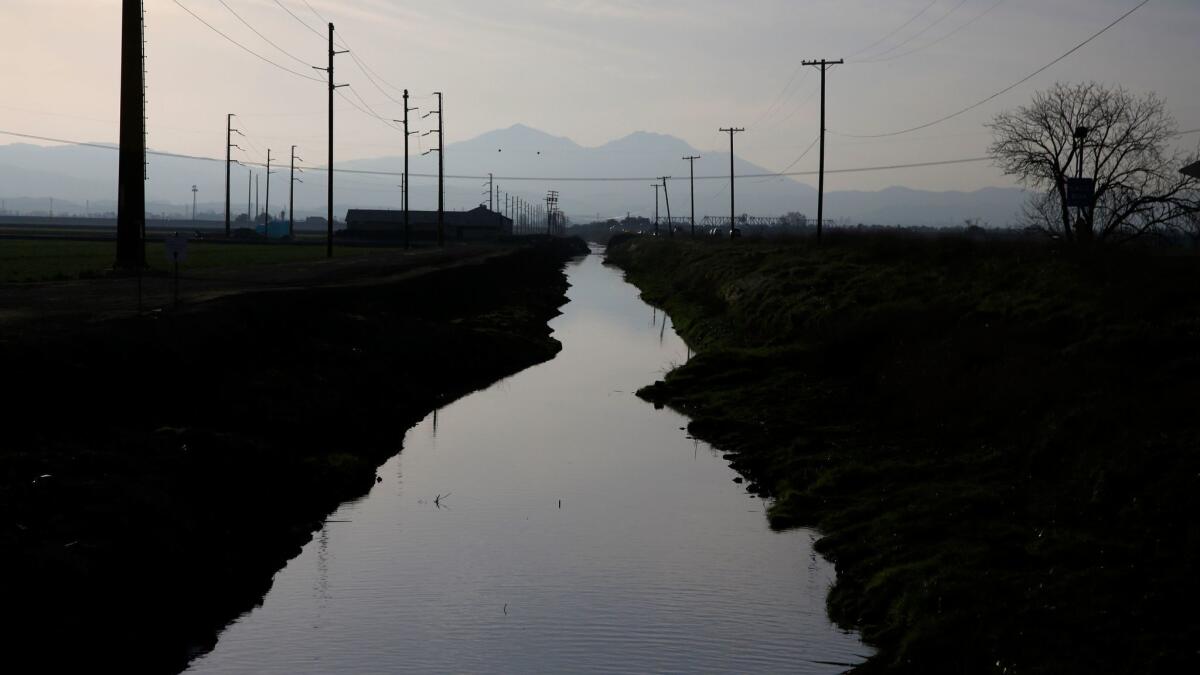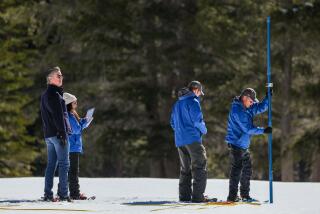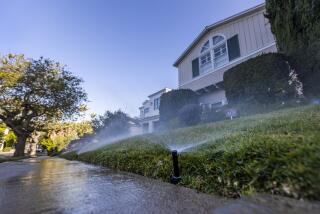Capitol Journal: History is repeating itself for Gov. Brown’s delta tunnels project

What Gov. Jerry Brown has been pitching as his California WaterFix is seen by many San Joaquin Valley farmers as a checkbook buster. History may be repeating itself.
Hang around long enough and comets return. Brown is having the same problem he had 35 years ago trying to update the waterworks created in the 1960s by his father, Gov. Pat Brown.
Many farmers think the price is too high and the benefits too low. And they’re not buying.
Last week, the board of the Westlands Water District — the largest agriculture water district in the country — voted not to participate in Brown’s very costly and controversial proposal to reengineer plumbing in the Sacramento-San Joaquin River Delta.
Brown wants to bore two gigantic 35-mile, 40-foot-wide tunnels through the heart of the West Coast’s largest estuary to siphon fresh water from the Sacramento River before it flows into the delta. The water would be channeled directly into southbound aqueducts at the southern end.
The cost would be $17 billion, plus roughly double that for interest. The project would be paid for by its water users, mainly irrigation districts and customers of the Metropolitan Water District of Southern California.
Water for 25 million people and 3 million acres of cropland flows through the delta, or at least is supposed to. The plumbing is basically broken.
The huge water pumps that feed the aqueducts are frequently throttled down or shut off because they gobble up young salmon and other endangered fish.
Westlands, providing water for 700 farms in Fresno and Kings counties, was supposed to be a big player in the fix. Brown was counting on it to put up around 20% of the tunnels’ cost. But the board voted 7-1 to bow out.
“From Westlands’ perspective, the project is not financially viable,” the board said in a statement. “It cannot support a project that would make water supplies for its farmers unaffordable.”
There was no guarantee of increased water deliveries, partly because the Brown administration has been playing cute with words.
Trying to ease northern fears of a southern “water grab,” officials have been proclaiming that there’d be no actual increase in water exports from the delta. The exports would just be more reliable, they’ve said. But if they’re more reliable, doesn’t that also mean more water being sent south?
“There’s just too many unknowns,” Westlands board member Larry Enos told the Sacramento Bee. “The only guarantee is that once we do it, we have to pay the bonds back.”
All this sounds eerily like an echo from the early 1980s. As Brown approached the finale of his first eight-year stint as governor, he persuaded the Legislature to pass the original version of his tunnels plan, the so-called Peripheral Canal.
Water district vote deals major blow to California’s delta tunnel project »
The gigantic canal would have skirted the delta, siphoning fresh water from roughly the same spot as the tunnels.
Brown’s canal was blocked by an unlikely coalition of wary San Joaquin Valley farmers and skittish northern environmentalists who persuaded voters to repeal the legislation. The farmers thought the project was too costly and the water too iffy. Environmentalists considered it a delta killer.
The Westlands district itself wasn’t a major player, although some of its farmers were. The heavy money for the referendum came from rich valley growers who didn’t trust L.A. or state government. Delta farmers also ponied up. Just like today, they feared destruction of their croplands because of salt water intrusion due to reduced fresh water flows.
Unlike the canal, the current tunnels project isn’t vulnerable to a referendum because it was created by a state agency, not legislation. It would have needed voter approval if a ballot initiative affecting revenue bonds had passed last year, but the measure failed.
“The water wars are not going to ever end in California because water is a finite resource and the choices of extending the use of our existing supply are diminishing,” said political strategist Sal Russo, who ran the anti-canal referendum campaign. “There are only so many bricks you can put in a toilet to reduce water use.”
Russo adds: “Most people have come around to believing that on-stream dams are too destructive and not worth the cost. Desalination is the only prudent alternative, but costs are still very high. And you have the [‘Not in my backyard’] effect whenever you try to site a plant on the coastline.”
Brown’s tunnels also have another problem: His fourth and final term ends after next year. And none of his likely successors are wild about the immense project.
Lt. Gov. Gavin Newsom told me two years ago he thought the project was “too aggressive,” and that he preferred something “substantially more modest and substantially less impactful” to the environment.
Former L.A. Mayor Antonio Villaraigosa said last year: “Before we build those tunnels, we’ve got to do a lot more in the cities. Double recycling, go to drought-tolerant plants, clean up aquifers and invest in underground storage.”
State Treasurer John Chiang said last year: “You can’t start building tunnels and further devastate the ecosystem of the delta.”
Westlands’ rejection of the project doesn’t necessarily mean it’s doomed. Perhaps it will negotiate a better deal for itself. Or maybe other water users — including Southern Californians — will be asked to pay more on their monthly bills.
What Brown should do is rethink and retool. Reduce the project’s size and cost. Listen to the governor wannabes.
Follow @LATimesSkelton on Twitter
ALSO
Water district vote deals major blow to California’s delta tunnel project
More to Read
Get the L.A. Times Politics newsletter
Deeply reported insights into legislation, politics and policy from Sacramento, Washington and beyond. In your inbox three times per week.
You may occasionally receive promotional content from the Los Angeles Times.







